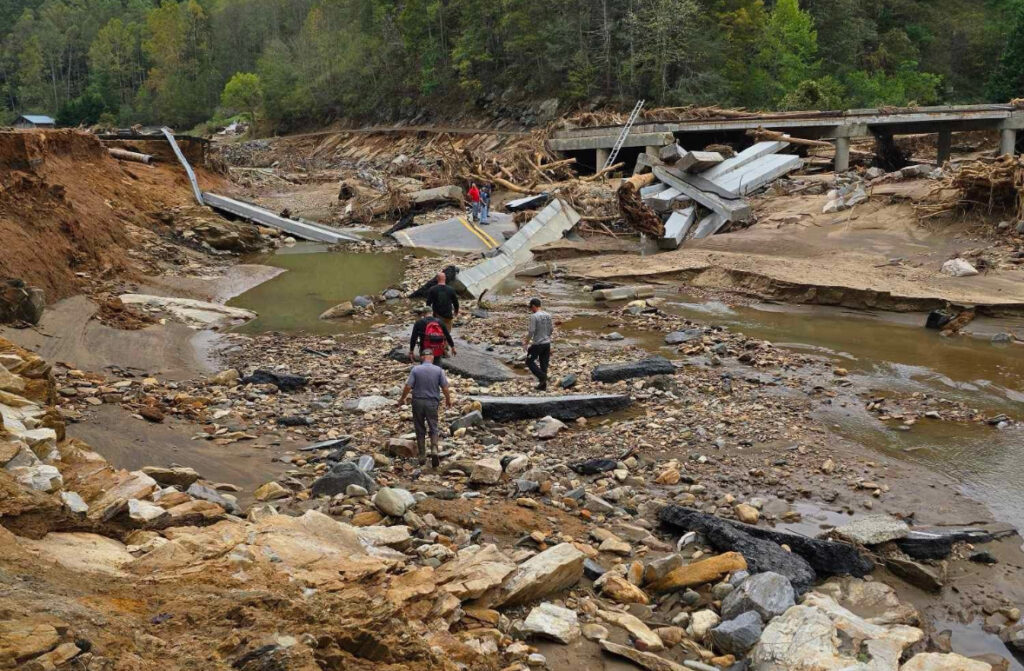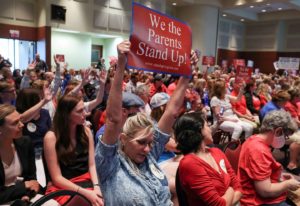‘Everything was gone’: Volunteer first responders recall slothful government response to Hurricane Helene, ask for prayer
When Hurricane Helene devastated North Carolina, the first responders weren’t from the government.
The real first responders weren’t paid, trained, or even supposed to be there….

When Hurricane Helene devastated North Carolina, the first responders weren’t from the government.
The real first responders weren’t paid, trained, or even supposed to be there. They were young men, volunteers from NC’s sister state of South Carolina, who refused to sit back and do nothing.
“We’re just a bunch of guys that wanted to get together and saw a need,” says Wilson, a 23-year-old who didn’t disclose his last name for fear of legal repercussions. He works in the offroad industry, which prompted him to help.
“We can’t sit idle,” he told The Lion Tuesday. “We aren’t well off enough to be able to sit at home and donate money, so we donated our time. We started getting messages [of] people that were stranded that were not getting reached so that was where we started from.”
Although they weren’t formally trained in emergency response, his small group had ample experience with offroad vehicles which made them uniquely suited to provide aid.
“I think it’s worse [than Hurricane Katrina] in some ways because of accessibility,” Wilson explained. “We’re dealing with hundreds of acres here where literally the only way you’re getting in is by foot, horseback or by offroad vehicles.
“It’s a lot harder to get into those places and a lot of the entities that were there just aren’t prepared for this type of terrain.”
During their trip on Sunday, Wilson and his group encountered FEMA (Federal Emergency Management Agency), the National Guard, and other groups. But he wasn’t impressed with their work ethic.
“All they were doing was sitting around doing nothing. And they were actually sitting and laying down on our trailers that we had brought down there and that just rubbed us the wrong way,” he recalled.
“There is [government] presence there but there’s no initiative really to be diligent in what they’re doing.”
First, Wilson and his group went to Canton, a small town 17 miles west of Asheville.
“We cleared all the roads out to a mountain because people needed oxygen and insulin and baby formula,” he told The Lion. “We cleared all the roads up there and brought everyone everything they needed, generators [and] whatnot.”
He estimated they cleared 15 roads and transported 30 people to the hospital. He also thought they were the first responders to make it to Canton – and their next location, Chimney Rock.
But when they came back down the mountain, they were told their help wasn’t wanted.
“They told us to leave, so we left. We went further into the worst part of it to where they weren’t even trying to go yet,” Wilson recalled. “After that we didn’t run into anybody else because we were in such a remote spot that nobody really even knew we were there.”
They provided similar aid for people in the Chimney Rock and Black Mountain area, roughly 27 miles southeast of Asheville.
“20-foot water”
The devastation was hard to describe.
“I grew up going to Chimney Rock as a kid,” Wilson explained. “When we got up there, Lake Lure had overflooded so much that main street was gone. There were no buildings anymore, it was just water and mud.
“There were some spots where you saw wetness marks of 20-foot water,” he continued. “When we drove over a bridge, we saw a whole Walgreens in the river. You name it, we saw it, pretty much. Everything was gone.
“Black Mountain and Chimney Rock [are] unrecognizable and just completely gone now.”
They served in the area for 5 hours before being shut down and told to go home.
When The Lion spoke to Wilson on Tuesday, his group was planning another excursion with the goal of clearing enough space for helicopters to air drop supplies.
“A lot of us [aren’t] taking a lot of supplies. We’re going in there with emergency and recovery equipment. We’re trying to make sure people stay alive until we can get supplies into them,” he explained.
When asked how people could help relief efforts, Wilson emphasized local organizations – and prayer.
“The best way that people can help right is obviously prayer. Prayer is the biggest thing,” he said. “Reach out to local organizations, local fire departments, stuff like that, people who are on the ground currently working and try to avoid companies like the Red Cross and these bigger corporations that are not familiar with the area and where to go.
“We’ve grown up here, we know what it’s like and so that’s why we jumped in.”
Wilson also isn’t sure the public realizes how catastrophic major flooding is in mountain areas.
“People have really underestimated what the devastation is really like. The media has definitely shadowed it a little bit to keep people calm,” he concluded.
“There’s a lot more devastation than people think.”



